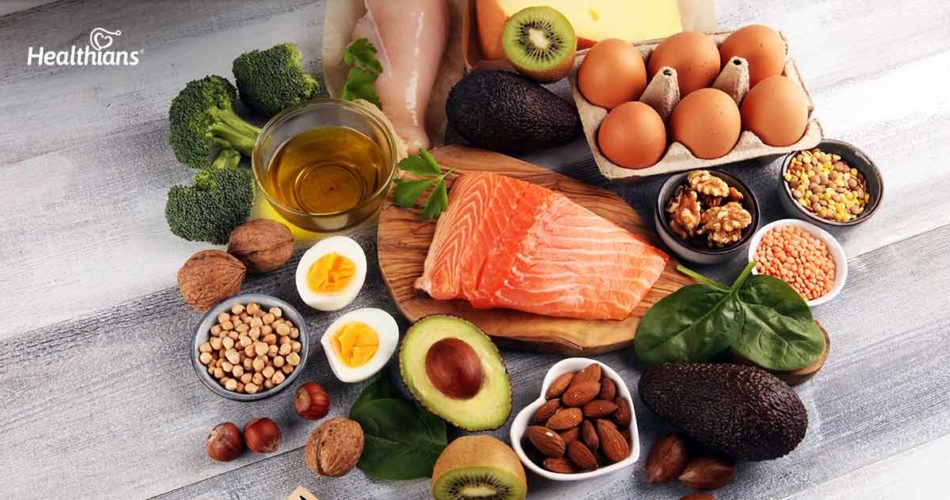Contributed by: Healthians Team
Introduction
Protein is an essential component of every cell in our body. Proteins serve an important function in all living cells since they participate in all metabolic activities and enzyme production.
Consuming a protein-rich diet on a daily basis maintains you healthy and energetic.
Protein aids in the healing of body cells and the development of muscles. They also provide structure and support to the body’s cells.
Protein-rich diets are necessary for the immune system, movement, hormone synthesis, and other bodily processes.
In this blog, we highlight the best high-protein foods that you should incorporate into your daily diet.
Eggs
Eggs are also a high-quality protein source that is easily absorbed by the body.
With one egg containing about 6 to 7 grams of protein, it is considered to be an incredibly healthy food for breakfast, lunch or dinner.
Eggs also include vitamins, minerals, and antioxidants that are beneficial to our bodies.
Almonds
Almonds contain a whopping 6 grams of protein per 28 grams of almonds, along with essential minerals such as magnesium, manganese, and vitamin E to help you live a healthier life.
Almonds’ antioxidant properties also aid in the healing of the body’s cells.
Chicken
Chicken is one of the most commonly consumed high-protein food.
Boneless and skinless chicken breast has long been held up as one of the best sources of protein.
Aside from proteins, chicken is high in B vitamins, zinc, and selenium.
Paneer
Paneer or cottage cheese is an excellent source of high-quality protein. It contains a lot of b12, selenium, calcium, phosphorus, and other minerals. Particularly for vegetarians, paneer is the major source of protein.
Greek yoghurt
Greek yoghurt is another high-protein snack. If you are a vegetarian, greek yoghurt should be a staple in your daily protein intake.
A typical 6-ounce portion has 15 to 20 grammes, which is equivalent to 2 to 3 ounces of lean meat.
This makes it especially enticing to vegetarians, who can struggle to acquire enough of the nutrient.
Calcium, vitamin b12, vitamin a, selenium, and zinc are among the minerals found in yoghurt.
Milk
Drinking milk on a daily basis is a wonderful way to enhance your protein consumption.
This is because it offers important nutrition: it has lots of bone- and muscle-building protein.
Milk also contains a variety of vitamins and minerals, including calcium, phosphorus, B vitamins, potassium, and vitamin D.
Nuts
Nuts are not only delicious; they are among the best sources of plant-based proteins.
They are loaded with an impressive profile of proteins per ounce. They are particularly good for those who eat few or no animal products.
Fish
This nutrient king is loaded with a healthy dose of protein. Fish also contains a range of vitamins and minerals.
Regular fish consumption lowers the chance of acquiring ailments such as type 2 diabetes and heart disease.
Legumes
For many people, legumes or pulses constitute their main source of protein.
Most pulses contain approximately 21 to 25 per cent protein, which is roughly double that of cereals.
Legumes do not contain all of the required amino acids, but when ingested in conjunction with grains, they do.
Cereal and pulse proteins work well together to provide a high-protein meal.
Final thoughts
A good supply of protein-rich foods is one of the important elements of a balanced diet. Of course, the appropriate dosage varies from person to person and is determined by a variety of circumstances.
Your age, whether you are developing, pregnant, or nursing, and your level of activity are all factors that influence your protein intake.
As a general rule of thumb, an active adult should ingest 60 to 80 gms of protein each day.
Moreover, you should also frequently opt for preventive health screening. It provides you with vital insights into your health, allowing you to take necessary measures to improve it.




